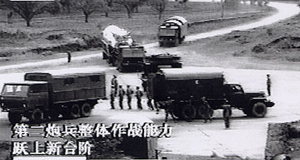From Cornell International Affairs Review VOL. 2 NO. 2The Case for America's Continued Superpower Status
IN THIS ARTICLE
KEYWORDS
Is America really in decline as a global superpower? We examine current arguments for America's economic decline and argue that a purely economic analysis is insufficient for evaluating a country's status as a global superpower. Our comprehensive definition of superpower incorporates military strength, internal stability, and the global attractiveness of a state's culture and ideology that it presents to the rest of the world. America is the only state fitting of this comprehensive definition of a superpower in the 21st century, while all other states frequently cited as emerging global powers fail to meet the criteria we lay out in this paper. The Rationale Behind American DeclineObama's presidency comes against a growing consensus that America is in the beginning phases of decline as the definitive global superpower. In 2009, GDP estimates and growth figures point to an increasingly diminished role of the United States in the global economy.1 As America faces what many consider to be the worst economic crisis since the Great Depression, many have also begun to question the credibility of the United States as the financial center of the modern world. Is there a case to be made for America's economic decline, and will America's reduced economic status in the 21st century compromise its role as the world's sole superpower? To be sure, theories about the decline of America's power are as old as American power itself. During the 1960's, the Soviet Union's charge into space, economic growth, nuclear strengthening, and the increasing spread of communism around the world served as the bases for many theories on America's demise from security and economic perspectives. In light of American failures in Vietnam and the continued U.S.-Soviet arms race, the next decade saw more predictions of decline centered around national security. In the 1980's the focus shifted to economics as the world witnessed Japan's rapid economic development and the U.S. began showing signs of over-stretching. With the end of the Cold War, there was talk of America's moral demise in a post bi-polar world that no longer had single superpower domination.2 None of these theories came to fruition, but that is no reason to dismiss more recent concerns without thorough examination. The economic decline of the United States has been articulated in many arguments, the most prominent of which is that the United States has become a debtor nation, borrowing large sums of money from China as credit for continued economic and budgetary expansion. Chinese possession of large numbers of American T-bills has been cited as a major threat to economic security. Another oft-cited sign of decline has been America's industrial decline, as other nations begin to supplant America's productive role in the world industrial market. Needless to say, the economic concerns confronting the United States are considerable.3 There are also more normative arguments. In his Foreign Affairs article, even though he makes clear that the United States is not suffering from internal economic deterioration and will probably maintain its dominant share of the global economic pie, Fareed Zakaria makes the case that the United States will have to eventually accept a diminished global role as a result of the economic rise of the rest. "The rest that are rising are embracing markets, democratic government (of some form or another) and greater openness and transparency. It might be a world in which the United States takes up less space, but it is one in which American ideas and ideals are overwhelmingly dominant."4 Zakaria also points out that the United States' role in global finance is shrinking, with the rising states of Asia and even the established states of the Eurozone playing increasingly important roles in global finance and witnessing a faster overall growth of financial stock. The recent financial crisis has only strengthened arguments about America's financial decline, adding the questionable future of free-market capitalism into the mix. Resulting from tangible financial losses as well as the loss of financial credibility and confidence, some believe that the global roles of the United States and the European states will shrink in tandem with those countries' economies and financial sectors.5 The 21st Century is DifferentWe do not wish to, by any means, dismiss the importance of economics in international relations or global politics, but rather to reconsider the significance of economics as a measuring stick for how we conceive superpowers. As the world progresses into the 21st century, a purely onedimensional economic evaluation of a state's superpower status has become increasingly insufficient. One can easily see that, on the most basic level, that a country's economic size and importance as a center of global finance does not necessarily correlate with its importance in international affairs. Economic size is usually measured in GDP, or Gross Domestic Product, which is equal to the total value of domestic consumption, investment, government expenditure, and net exports. Japan, which ranks second in total nominal GDP, holds very little sway in international politics, while countries with increasing regional influence like Iran and Venezuela have economies more than ten times smaller than Japan, by most estimates.6 Recent surveys of the world's top financial centers also blur the connection between the importance of a state's financial sector and its influence in global affairs. In a 2008 survey of the world's top financial centers, one will find the Swiss cities of Geneva and Zurich ranked seventh and fifth, respectively.7 Two things appear clear: having top financial centers within a state's borders does not qualify it as a superpower (Switzerland), nor does the absence of a top financial center disqualify a country from having prominence as a regional or global power (ex. Russia, India, Venezuela, Brazil, France, Saudi Arabia, Iran). The increasing pace of globalization has also complicated the importance of a country's GDP figures as a determinant of its influence in international affairs. The rise of the United States as a global superpower came about mainly as a result of the long standing American traditions of openness and innovation. The United States owes much of its historical ascent to its ability to attract the ingenuity of vastly diverse groups of people and to channel that human capital into industrial innovation and economic dynamism.8 World War One gave America an opportunity to showcase its might as a regional power, and after the Second World War left most of Europe in complete ruin, the balance of power shifted westward and America established itself as a premiere global superpower. But, historical circumstance aside, what made America into the economic giant that it is today? We maintain that it was a distinctly American commitment to innovation, industrialization, open trade and liberalized economics that shot America onto the global scene and kept it there for the remainder of the 20th century. This is where America derived much of its original advantage over other countries, but as more and more countries embrace democratic governments, open trade policies and market-oriented economies, it is no wonder that America's share of the global GDP pie will diminish to some extent. Zakaria provides an elaboration of this concept: "Over the last 20 years, globalization has been gaining breadth and depth. More countries are making goods, communications technology has been leveling the playing field, capital has been free to move across the world—and the United States has benefited massively from these trends." In many respects, the world has become more of a leveled playing field where economic imbalances are likely to have less pronouncement. Pure GDP comparisons are no longer sufficient. Towards a More Comprehensive DefinitionA more comprehensive definition of superpower is needed for the increasingly globalized world of the 21st century. We stress at least three factors: the importance of military capabilities (along with the concomitant influences of these capabilities), internal stability, and the global attractiveness of a state's culture and ideology. The intention here is not to overlook economics—we have already shown why a purely economic evaluation is insufficient, and all of these three criteria are dependent on the existence of a functional economy. Of all of today's powers, the United States is the only one that possesses significant strength in all three categories. In the 21st century, a state's military strength will remain relevant for its sway in international affairs. But many would argue that, because of the decreasing fear of direct attack between established nation states, military force is no longer as relevant in the 21st century. Moreover, many economic and ecological goals of growing importance are not achievable through military means.9 To a certain extent, we agree that pure military force and second-strike capabilities are perhaps less important than they were before, but the military aspect of state's superpower status cannot be overlooked. The ability to project power around the world is of paramount importance to any superpower, and, as recent operations in Panama, Haiti, Somalia, the Persian Gulf, and Afghanistan show, coercion remains a strong force in international diplomacy. The first element of military strength is a simple relative advantage over other states. The ability to easily deter and defeat potential threats and enemies will always be a top military objective for any superpower. Additionally, defense and security obligations are a way for a potential superpower to expand its power. By guaranteeing the security of other states, the superpower forces protected countries to buy into the international system that serves the best interest of their protector. Training missions are another way of extending geopolitical power through military means. Military training enhances the military capabilities of allies while building important cross-military ties that serve to strengthen future relations. Finally, military arms sales are invaluable for international influence. Besides strengthening the diplomatic relationship between a superpower and an ally or potential ally, arms sales symbolize a commitment and high level of trust between the buyer and the seller. Buyer states trust that these weapons will not be used against its interests while the seller state trusts the buyer to both help supply the spare parts and the training for the weapons. The U.S. is the global military leader on both of these fronts. The size of the United States' economy also allows it to outspend the rest of the world in military expenditures while utilizing less than 5% of its GDP on military spending.10 The United States has utilized these expenditures to create a force at least twenty years ahead of its closest competitors. The money invested in the late eighties and early nineties gave birth to a generation of military hardware that has yet to be matched by any country. The American ability to project power is also unrivaled. During the first Persian Gulf War, American generals were frustrated by their inability to build up substantial forces in Kuwait quickly. Since then, the United States has greatly expanded its ability to quickly deploy forces anywhere in the world on short notice. Aircraft carriers, amphibious assault ships, ballistic submarines, and long-range bombers give the United States the unprecedented ability to rapidly project force anywhere in the world. American military power is an especially potent tool because it is one of the most fungible forms of power. Fungibility is the ability of one form of power to influence other realms of influence.11 Military power is highly fungible because it influences diplomatic relations and political decisions. American military power not only allows dominance in battle but also holds much influence over other areas of influence. The second criterion for a superpower, one greatly overlooked by those who argue for the decline of America and the rise of other regional powers, is a state's internal stability. As far as it concerns a superpower's leverage and maneuverability in international relations, internal stability is crucial because a state must be able to make foreign policy decisions without the looming threat of its citizens revolting against and taking over the government. This is by no means an endorsement of governments not being held accountable to the people who elect them. Quite the opposite: the state must be accountable, but only through welldefined and respected means of electing, changing, and transferring power. Internal stability also concerns societal stability, ethnic harmony, and the absence of destabilizing separatist movements. It is not our intention here to overlook deficiencies and inequalities in American society, but we do argue that American society and the American institution of democracy are and will remain stable. We need not look further than the last fifteen years of American history to see just how stable our institutions really are. In this period, Americans witnessed presidential impeachment hearings, an historic 2000 election that challenged the very roots of our legal processes, a domestic terrorist attack that cost the lives of more than 2,000 citizens, and two foreign wars. And yet, the fabric of American society held together, and the system continued to work. The election of Barack Obama as the forty forth President of the United States is just another indication of the societal progress that America has made and will continue to make in the future. Although our first two superpower criteria are more fitting of a realist perspective, we cannot avoid taking a neoliberal perspective in advocating the importance of a state's culture and ideology that it presents to the rest of the world. Joseph Nye's concept of soft power comes into play here. A nation, by pure virtue of its identity, can attract nations to its influence and expand its relative power in the world. This identity is composed of a nation's values and culture. A sellable culture and ideology is necessary for a superpower not just for material purposes such as attracting immigrants but also for the immaterial objective of creating a positive global perception. If we integrate a constructivist standpoint—which maintains that the structures of international relations among states are determined by shared ideas instead of material forces—into our comprehensive definition of superpower, then the global perception of a superpower's culture and ideology is just as important as the superpower's military might and internal stability.12 We cannot speak for the peoples of the world, nor can we make a claim about how citizens of different states perceive the United States. But we believe we can make a case for the culture and ideological image of America that most Americans would like to project to the rest of the world: one characterized by limitless individual possibility and a commitment to democracy and capitalism. The New York Yankees, Coca-Cola, and McDonald's arches are perhaps the greatest symbols of the global appeal of American culture and America's superpower status. Critics of this constructivist view would question the value of soft power. As an answer to this, we would point to Nazi Germany as a nation that possessed the more traditional means of power, but didn't have a culture that attracted other nations to its side. Only through force was German hegemony maintained in Central Europe. Had Germany held cultural and ideological sway over its Central European allies, then its allies would not have defected over to the Allied side at the first opportunity. America, on the other hand, has very strong allies because it holds a tremendous amount of cultural influence. This is the mechanism through which an attractive culture and ideology translates into international influence.Continued on Next Page » Suggested Reading from Inquiries Journal
Inquiries Journal provides undergraduate and graduate students around the world a platform for the wide dissemination of academic work over a range of core disciplines. Representing the work of students from hundreds of institutions around the globe, Inquiries Journal's large database of academic articles is completely free. Learn more | Blog | Submit Latest in International Affairs |




















